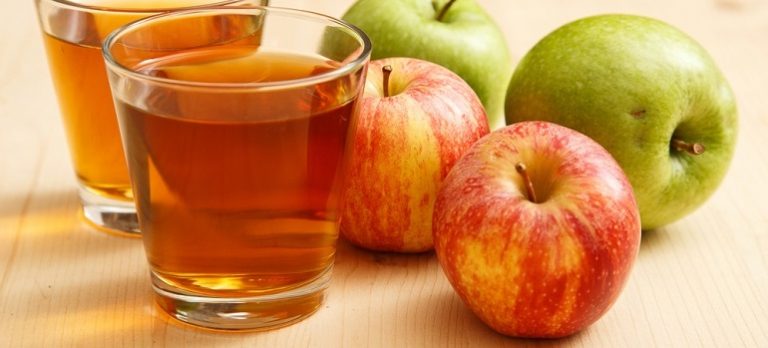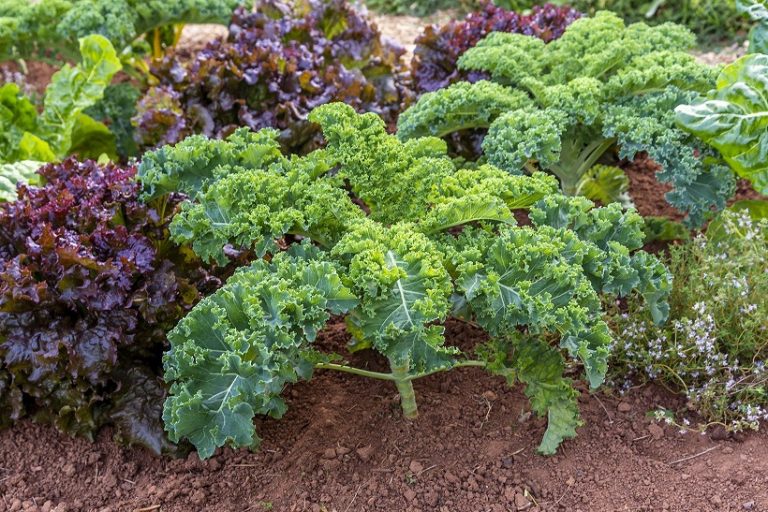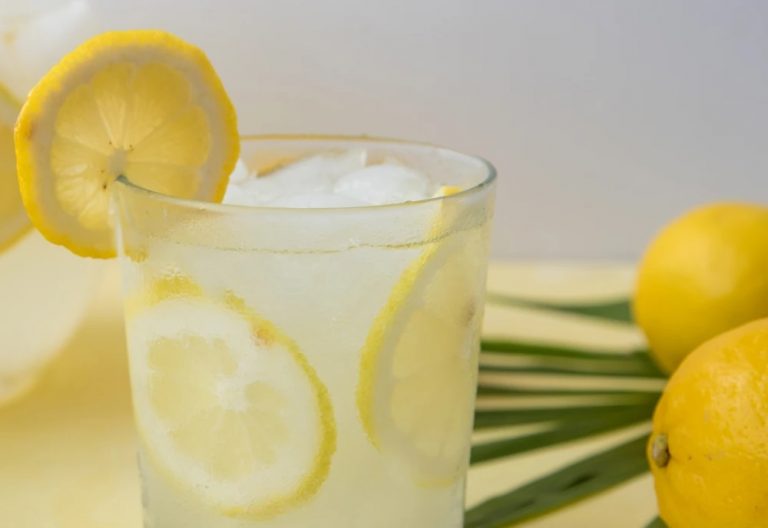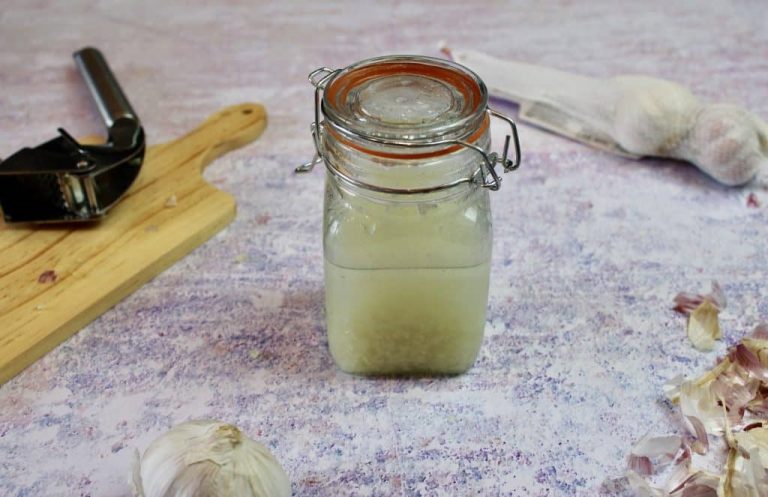How Long Does Homemade Juice Last in The Fridge – Tips & Tricks
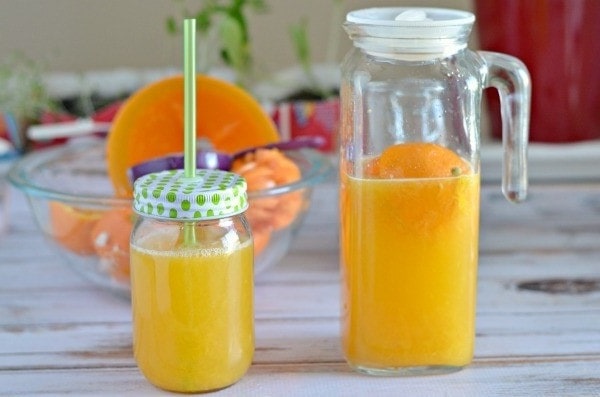
When you make your own juice at home, you have complete control over the ingredients that go into it. This is a big draw for many people, as they want to avoid chemicals and other additives in their food. Additionally, homemade juice often lasts longer in the fridge than store-bought juice. The challenge is that many people wonder, “how long does homemade juice last in the fridge?” In this article, we offer a detailed guide to figure out the correct answer to the question. Keep reading.
How Long Does Homemade Juice Last In the Fridge?
Fresh juice is a great way to get your daily dose of vitamins and minerals. When you juice at home, you extract all of the nutrients and vitamins from the fruits and vegetables. These compounds are found in fresh juice only, not in the juice that has been stored for days at a time. This means that if you drink fresh juice, you are getting all of the benefits of those nutrients immediately. However, if you store your juice for a few days, some of those nutrients will start to degrade.
Fresh juice can last in the fridge for up to five days. After that, it may start to spoil and taste bad. Therefore, it is best to drink fresh juice as soon as possible.
What Makes Homemade Juices Go Bad?
Homemade juices go bad when they’re exposed to air, light, and/or heat. When these factors are combined, the enzymes in fruits and vegetables break down the nutrients and vitamins, making the juice less nutritious.
Oxidization explained
Oxidation is the process of losing an electron. When a molecule loses an electron, it becomes unstable and looks for another molecule to take its electrons from. This can cause the molecule to change form or structure, which is often referred to as spoilage.
Oxidation is the chemical process that causes fruit juice to turn brown and develop an unpleasant taste. Three main factors affect oxidation: time, temperature, and exposure to air. The more of these factors that are present, the faster the juice will oxidize.
In general, most juices deteriorate at the same rate when stored in the fridge. This is because of a process called oxidation, which happens when the juice comes into contact with oxygen in the air. The oxygen molecules will attach themselves to the juice, causing it to change color and flavor. Consequently, it is essential to store juices in an airtight container so that as little oxygen as possible can come into contact with them.
Bad Bacteria
Bad bacteria are typically only seen after the juice is gone. This means that if you want to make sure your juicing experience is safe, you need to clean all of your equipment thoroughly.
As a juice starts to spoil, bad bacteria will increase exponentially. This can cause health problems for the drinker, so it is essential to know when a juice has gone bad. Signs that juice has spoiled include off-putting smells, mold, and discoloration.
One way to prevent bad bacteria is by buying the freshest and highest quality produce. This will help reduce the amount of time that the fruits and vegetables are in contact with bacteria. Additionally, make sure to wash all fruits and vegetables before consuming them.
What Type Of Juicer Should You Use To Make Fresh Juice?
If you’re looking to make fresh juice at home, it’s essential to use the right type of juicer. There are many different types of juicers on the market. Some juicers work better with harder fruits and vegetables, while others are better for softer ones. Knowing which type of juicer to use can help keep your juice fresher for longer. The most popular ones are centrifugal juicers, masticating juicers, and cold-press juicers. Each type has its benefits and drawbacks. It is essential to do your research before purchasing a juicer to ensure you get one that will fit your needs.
Centrifugal Juicer
Centrifugal juicers are the most common type of juicer and work by using spinning blades to extract juice from fruits and vegetables. Centrifugal juicers are usually easy to use and clean. They typically have a fast speed, which means that you can make juice quickly. The high speed of the blades can cause heat to build up, so it’s important to be careful when using them. However, they also produce less juice than other types of juicers.
Masticating Juicer
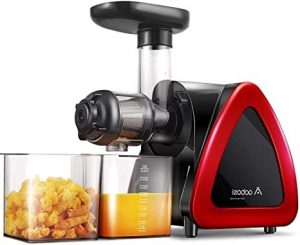
Masticating juicers are a great option if you want to make fresh juice at home. They slowly grind the fruits or vegetables to extract the juice. They are a type of juicer that uses force to get the juice out of the fruit or vegetable. This is opposed to centrifugal juicers, which use blades to chop up the produce and then spin it around at high speed to extract the juice. This method preserves more nutrients and enzymes than other methods, such as centrifugal juicing. However, Masticating juicers often produce more juice than centrifugal juicers, and they also tend to be more expensive.
Champion-Style Juicer
Champion-style juicers are an excellent option for those who want to make fresh juice at home that will last longer quickly. They have a fast spin speed, which means that you can get through your fruits and vegetables faster. These juicers generate less heat and don’t cause oxidation, which means your juice will stay fresher for longer. These juicers are more efficient than other types of juicers at extracting juice from fruits and vegetables, so you’ll get more juice out of every piece of produce. Additionally, they’re often portable so that you can take them with you on the go.
If you use a centrifugal juicer machine, your juice will last up to 24 hours. If you use a cold-press juicer, your juice will last up to 120 hours. Finally, if you have a masticating juicer, your juice will last up to 72 hours in the fridge.
Storage Techniques to Keep Your Juice Fresh
Many different factors affect how long your homemade juice will last. The type of juice, the amount, and the preservation all play a role in how long it lasts. Below are some tips to help you keep your homemade juice fresh for as long as possible.
- Organic produce is always the best option for juicing fruits and vegetables. Not only does organic taste better, but you can also be sure that no harmful chemicals were used in the farming process.
- It is important to store the juice right away after juicing to preserve all nutrients and enzymes. If you wait too long, they will start to degrade, and you will lose some of the benefits.
- When storing juice, it is important to use airtight containers. This will help keep the juice fresh and prevent spoiling. Glass containers are a good option because they are airtight and durable.
- It is crucial to fill the container up to the top to prevent oxidation when storing juice. This will help keep the product fresh and preserve its flavor for as long as possible.
- Adding mint to your juice not only gives it a refreshing flavor but also keeps it looking and tasting great. In addition, the herb is known for its detoxifying and cleansing properties, so you’ll be doing your body a favor by adding it to your drink.
- It is advised not to open the container frequently. The high acidity in most juices means that they quickly degrade and lose flavor after being opened. Therefore, it is best to drink juice as soon as possible after opening the container.
- It is important to store your juice in the refrigerator in order to keep it fresh. The fridge will help to slow down the oxidation process and keep your juice tasting great. Homemade juice can last from 24 to 120 hours if properly sealed and refrigerated.
- When choosing a juicer, it is crucial to consider the type of juicer that will best fit your needs. For example, if you are looking for a juicer that is easy to use and clean, you may want to choose a centrifugal juicer. On the other hand, if you are looking for a more powerful juicer that can handle tougher fruits and vegetables, you may want to choose a masticating or cold-press juicer.
- Freezing juice can destroy the nutrients and vitamins that are present in the drink. When you freeze juice, the water in the juice expands and causes ice crystals to form. These ice crystals damage the cellular structure of the fruit or vegetable and can destroy nutrients and flavor. So, it is important to try not to freeze your juice, especially if you want to consume the drink for its health benefits. If you decide to freeze your juice, make sure that you store it in an airtight container. This will help to keep the juice tasting fresh for a more extended period.
- There are a few different ways to store it when traveling with juice. You can use a cooler bag with ice packs in it. This will keep the drink cold for a longer time.
What to Consider in the Container for Homemade Juices?
One reason juices go bad is because of scratches on the inside of the container. The scratches create a place for bacteria to grow, and when the juice is consumed, that bacteria can cause food poisoning. So it is important to give attention when choosing suitable containers for your homemade juices.
When it comes to storing juice, it is important to have a strong seal that will prevent the liquid from leaking. If the seal is not strong, the juice will leak and cause a mess.
If you want to keep your homemade juice fresh, you should use a strong juice container with a seal. Juice containers with seals help to keep the air out and prevent oxidation, which can ruin the flavor of your juice. You can also wrap the juice in Saran wrap if you want to be extra careful.
One way to keep your homemade juice fresh is by ensuring that the glass bottles or jars you store it in are hygienically clean. This means washing them with hot, soapy water and rinsing them thoroughly. You can also sanitize them by boiling them for a few minutes. It is better to use eco-friendly glass bottles or jars. Not only do they look nicer, but you can also put them in the dishwasher without worrying about any damage.
It would help if you also stored different juices in different containers. For example, apple juice will last longer in a glass container than it will in a plastic container.
What’s the Difference Between Store-Bought Juice and Fresh Squeezed?
Store-bought juice is often pasteurized and has a longer shelf life than fresh-squeezed juice. However, it also contains more sugar, which can be harmful to your health. Fresh-squeezed juice is healthier for you and tastes better, but it has a shorter shelf life.

On the other hand, store-bought juices are often processed and pasteurized, which destroys the natural goodness of the juice. So while they may last a little longer in the fridge than store-bought juices, fresh squeezed juices still have a shorter shelf life.
Fresh juice is always the way to go as it retains all of its nutrients and flavors. On the other hand, store-bought juice has been pasteurized, which kills all the good stuff. Not to mention, store-bought juice is often loaded with sugar and other additives.
Freshly squeezed juice contains more nutrients than store-bought juice. The shelf life for store-bought juice is typically around two weeks, but if you make your own juice, it will last up to five days in the fridge.
Related article: How to Juice Garlic
How Do You Know When Juice Goes Bad?
If you are juicing at home, knowing how long the juice will last in the fridge is important. Generally, fresh juice should be discarded if any of the following signs are present.
One of the most apparent signs that juice has gone bad is discoloration. It is likely spoiled if the juice has turned a different color and should not be consumed. Other signs that juice has gone bad include an off smell or taste, mold, and gas bubbles.
Mold is a sign that juice has gone bad and it is not safe to drink. Other signs that juice has gone bad include color, odor, or taste changes. If you are unsure whether or not your juice has gone bad, it is best to discard it.
If you’ve got some old juice in your fridge, it’s time to throw it away and make some new. Juice can last for a few days in the fridge, but it’s not going to be very tasty after that. There are a few ways to tell if the juice has gone bad – if it smells funny, tastes sour, or has mold on it, then it’s time to toss it.
FAQ’s
How Long Does Fresh Juice Last?
Fresh juice lasts between two days and a week in the refrigerator. The best way to store fresh fruit juices is to pour them into an airtight container with a lid, such as a jar or a bottle. Additionally, it is recommended to store fruits and vegetables in the fridge’s crisper drawer.
What Are Things Better Not to Juice?
You should also avoid any vegetables with tough seeds and do not have a lot of juice. These include broccoli, cauliflower, and brussels sprouts. It’s better not to juice fruits or vegetables that have chemicals on them. For example, don’t juice non-organic apples if you want your juice to last longer. The chemicals on the apple will make your juice spoil faster.
Can I Make Green Juice the Night Before?
No, you cannot make green juice the night before. Green juices are made fresh daily and should not be stored for more than a few hours in order to preserve nutrients and avoid oxidation.
How Long Does Fresh Juice Last In Mason Jar?
The length of time fresh juice can stay in a mason jar depends on the individual’s taste and preference. For example, some people like to drink their juice immediately, whereas others prefer to let it sit in the jar for a few hours. It is also important to note that some juices may spoil faster than others, depending on the individual’s preference and taste.
Does Fruit Juice Go Bad In The Fridge?
Fruit juice has a longer shelf life than other types of foods, but it will generally be safe to consume for up to three days in the fridge.
How Long Does Celery Juice Last in the Fridge?
Celery juice can last in the fridge for up to 2 days. However, if you plan to keep celery juice for more than two days, it is best to store it in a sealed glass container. While celery juice does not spoil, it will lose its flavor over time and sour. Therefore, it’s best to consume celery juice within a couple of days after it is made.
Why Does Fresh Juice Go Bad Faster?
The fruit’s natural sugars are converted into lactic acid, a byproduct of the fermentation process. This causes the pH levels to drop and the juice to become more acidic.
What Happens When You Store Juice for More Than 72 Hours?
Some of the things that happen to juice when you store it for more than 72 hours; The juice will lose potency, It may start tasting funky or rotten, and the vitamins in the juice will break down and become unusable.
Do Some Fruits and Vegetables Last Longer than Others?
Yes, some fruits and vegetables last longer than others. Apples, for example, are a fruit that can last up to five weeks. Other examples of fruits with a long shelf-life include bananas, oranges, and pears. In contrast, vegetables like celery can last for a week or two.
Should I Drink Fresh Juice In The Morning or at Night Time?
The best time to drink fresh juice is in the morning when your digestive system is at its peak. However, drinking fresh juice in the evening can lead to a spike of sugar, and that can cause digestion issues and weight gain.
Do Different Homemade Juices Last Longer?
The general consensus is that different types of juice last longer in the fridge. However, it is important to remember that all juices will eventually spoil, so consuming them as soon as possible is best.
The length of time that homemade juice will last in the fridge depends on various factors, including the type of juice, how it was made, and how it was stored. However, most juices will generally last around 3-5 days in the fridge. Certain juices, like citrus fruits or apple cider vinegar, may last a bit longer, while other juices, like vegetable juice or fruit smoothies, may not last as long.
The shelf life of homemade juice dramatically depends on the ingredients you use. For example, if you use citrus fruits like oranges and grapefruits, your juice will last in the fridge for up to a week. However, if you use vegetables like celery or spinach, then your juice will only last for a day or two in the fridge.
Conclusion
When it comes to storing homemade juice, it’s important to know how long each type of juice lasts. For instance, apple and orange juices will last for about three days in the fridge, while grape juice can last up to a week. Knowing this information can help you ensure your homemade juice is being stored properly and consumed at a safe rate.
The answer to this question, “how long does homemade juice last in the fridge” is not a simple one as it depends on a variety of factors. For example, whether the juice has been pasteurized or not will make a difference. Generally speaking, homemade juice will last for around two to five days in the fridge.



